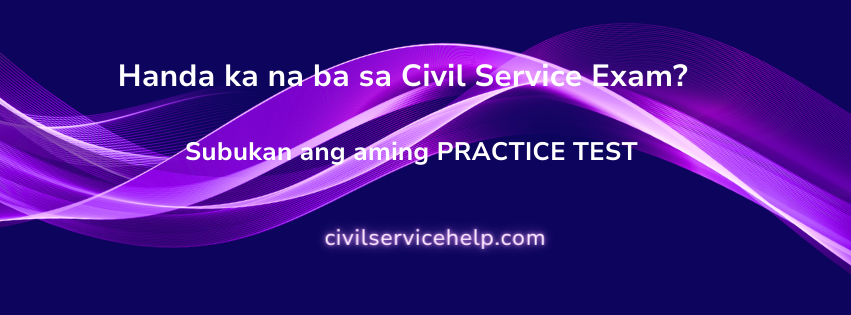Ano ba ang Homophones at paano ito gamitin?
Basahin ang aming mga Practice Test!

Overview of Homophones
Definition of Homophone
Homophones are words that sound the same when pronounced but have different meanings, spellings, or both. The term “homophone” comes from the Greek words “homo,” meaning “same,” and “phone,” meaning “voice” or “sound.” Homophones can be challenging because their identical pronunciations can lead to confusion, especially in writing.
Examples of Common Homophones:
“Their,” “there,” and “they’re”
Their: Possessive form of “they” (e.g., Their house is big.)
There: Refers to a place or position (e.g., The book is over there.)
They’re: Contraction of “they are” (e.g., They’re going to the park.)
“Your” and “you’re”
Your: Possessive form of “you” (e.g., Is this your pen?)
You’re: Contraction of “you are” (e.g., You’re going to love this.)
“To,” “two,” and “too”
To: Preposition (e.g., I am going to the store.)
Two: Number (e.g., I have two cats.)
Too: Means also or excessively (e.g., I want to come too. / The soup is too hot.)
“Peace” and “piece”
Peace: State of tranquility or absence of war (e.g., World peace is important.)
Piece: A part of something (e.g., Can I have a piece of cake?)
“Sea” and “see”
Sea: Large body of saltwater (e.g., We sailed across the sea.)
See: To perceive with the eyes (e.g., I see a bird.)
Why Homophones Matter:
Understanding homophones is crucial for effective communication. Misusing them can change the meaning of a sentence and lead to misunderstandings. For example, confusing “bear” (the animal) with “bare” (uncovered) can create confusion in written and spoken language.
Tips for Mastering Homophones:
1.Contextual Clues: Use the context of the sentence to determine the correct homophone.
2. Practice: Regularly practice by writing sentences with commonly confused homophones.
3. Mnemonics: Create memory aids to help differentiate between homophones. For example, “A bear has fur, and ‘bear’ has an ‘a’ like ‘animal.'”
4. Proofreading: Always proofread your writing to catch homophone errors.
5. Reading: Read extensively to see homophones used correctly in context.
Practice Test on Homophones
Instruction: Choose the correct homophone to complete the sentence.
Question 1
Question: ___ is no reason to believe that we can’t win the match today.
Choices:
A. Their
B. There
C. They’re
D. Thier
Answer: B. There
Explanation: “There” is used as an adverb to indicate existence or presence. It fits correctly in this context to suggest that “no reason exists.”
Question 2
Question: Have you seen ___ new house? It’s absolutely stunning!
Choices:
A. their
B. there
C. they’re
D. ther
Answer: A. their
Explanation: “Their” is a possessive pronoun indicating that the house belongs to them. It correctly indicates ownership of the house by the people being referred to.
Question 3
Question: ___ going to the beach this weekend if the weather remains nice.
Choices:
A. Their
B. There
C. They’re
D. Thair
Answer: C. They’re
Explanation: “They’re” is a contraction for “they are,” fitting the context here as it refers to the actions of a group (they are going).
Question 4
Question: You can put the groceries over ___ on the kitchen counter.
Choices:
A. their
B. there
C. they’re
D. thare
Answer: B. there
Explanation: “There” is used to indicate a place or position, in this case, where to put the groceries.
Question 5
Question: ___ concerns were addressed in the last meeting with the council.
Choices:
A. Their
B. There
C. They’re
D. Theire
Answer: A. Their
Explanation: “Their” is used to show possession of the concerns by a group of people.
Question 6
1. Sentence: She couldn’t believe her ______ when she saw the surprise party.
A) sight
B) site
C) cite
D) side
Correct Answer: A) sight
Explanation: “Sight” refers to the ability to see, which fits the context of seeing the surprise party. “Site” refers to a location, “cite” means to reference, and “side” refers to a position or aspect.
Question 7
Sentence: The children went to the park to ______.
A) play
B) plea
C) plae
D) plai
Correct Answer: A) play
Explanation: “Play” means to engage in fun activities, fitting the context of children at the park. The other options are incorrect spellings.
Question 8
Sentence: She had to ______ her book report by Monday.
A) write
B) right
C) rite
D) wright
Correct Answer: A) write
Explanation: “Write” means to compose text, which fits the context of a book report. “Right” means correct, “rite” means a ceremonial act, and “wright” is a maker or builder.
Question 9
Sentence: The knight wore a suit of ______.
A) armor
B) arm
C) armer
D) amour
Correct Answer: A) armor
Explanation: “Armor” refers to protective clothing worn by knights. “Arm” is a body part, “armer” is incorrect, and “amour” means love in French.
Question 10
Sentence: They could not ______ the high cost of living in the city.
A) bare
B) bear
C) bair
D) beer
Correct Answer: B) bear
Explanation: “Bear” means to endure, which fits the context. “Bare” means uncovered, “bair” is incorrect, and “beer” is a beverage.
Question 11
Sentence: The artist likes to ______ landscapes.
A) pain
B) pane
C) payne
D) paint
Correct Answer: D) paint
Explanation: “Paint” means to create art with paint, fitting the context. “Pain” means discomfort, “pane” is a window glass, and “payne” is incorrect.
Question 12
Sentence: She has a great ______ for fashion.
A) sense
B) cents
C) scents
D) sent
Correct Answer: A) sense
Explanation: “Sense” means a keen awareness, fitting the context of fashion. “Cents” are currency, “scents” are smells, and “sent” means dispatched.
Question 13
Sentence: The boat sailed across the ______.
A) see
B) sea
C) sie
D) c
Correct Answer: B) sea
Explanation: “Sea” refers to the large body of saltwater. “See” means to view, “sie” is incorrect, and “c” is a letter.
Question 14
Sentence: He has a ______ for making people laugh.
A) knack
B) nock
C) knak
D) knock
Correct Answer: A) knack
Explanation: “Knack” means a special talent or skill. “Nock” is part of an arrow, “knak” is incorrect, and “knock” means to strike.
Question 15
Sentence: The chef will ______ the vegetables for the stew.
A) pair
B) pare
C) pear
D) pere
Correct Answer: B) pare
Explanation: “Pare” means to trim or peel, fitting the context of preparing vegetables. “Pair” means two of something, “pear” is a fruit, and “pere” is incorrect.
Question 16
Sentence: They ______ the big game on TV.
A) watched
B) wotched
C) watced
D) wached
Correct Answer: A) watched
Explanation: “Watched” means to view, fitting the context of a game on TV. The other options are incorrect spellings.
Question 17
Sentence: The ______ flew high in the sky.
A) plane
B) plain
C) plaine
D) plene
Correct Answer: A) plane
Explanation: “Plane” refers to an aircraft, fitting the context. “Plain” means simple, “plaine” and “plene” are incorrect.
Question 18
Sentence: They needed to ______ the meeting for next week.
A) altar
B) alter
C) altr
D) alater
Correct Answer: B) alter
Explanation: “Alter” means to change, fitting the context of rescheduling a meeting. “Altar” is a religious structure, and the other options are incorrect.
Question 19
Sentence: She received a ______ for her excellent performance.
A) metal
B) medal
C) meddle
D) medel
Correct Answer: B) medal
Explanation: “Medal” refers to an award. “Metal” is a material, “meddle” means to interfere, and “medel” is incorrect.
Question 20
Sentence: The ______ of the hill was covered in flowers.
A) peek
B) peak
C) peake
D) peke
Correct Answer: B) peak
Explanation: “Peak” means the top of the hill. “Peek” means to glance, “peake” and “peke” are incorrect.
Question 21
Sentence: The lawyer advised his client to ______ the contract carefully.
A) assent
B) ascent
C) assend
D) amend
Correct Answer: D) amend
Explanation: “Amend” means to make changes, fitting the context of reviewing a contract. “Assent” means agreement, “ascent” means upward movement, and “assend” is incorrect.
Question 22
Sentence: They enjoyed a ______ evening by the campfire.
A) quiet
B) quite
C) kwiet
D) qiet
Correct Answer: A) quiet
Explanation: “Quiet” means calm and peaceful. “Quite” means to a certain extent, and the other options are incorrect.
Question 23
Sentence: The teacher asked the students to ______ their assignments.
A) hand
B) hands
C) handed
D) hand in
Correct Answer: D) hand in
Explanation: “Hand in” means to submit, fitting the context of assignments. The other options do not fit the context.
Question 24
Sentence: The ______ of the book was very intriguing.
A) story
B) storey
C) storie
D) storrey
Correct Answer: A) story
Explanation: “Story” refers to the narrative of the book. “Storey” refers to a level of a building, and the other options are incorrect.
Question 25
Sentence: The old house had a ______ of mystery about it.
A) air
B) heir
C) aire
D) ere
Correct Answer: A) air
Explanation: “Air” means an atmosphere or feeling. “Heir” means a person inheriting, “aire” and “ere” are incorrect.
Question 26
Sentence: The ______ was too high for them to reach.
A) ceiling
B) sealing
C) seeling
D) sealling
Correct Answer: A) ceiling
Explanation: “Ceiling” refers to the upper interior surface of a room. “Sealing” means closing, and the other options are incorrect.


